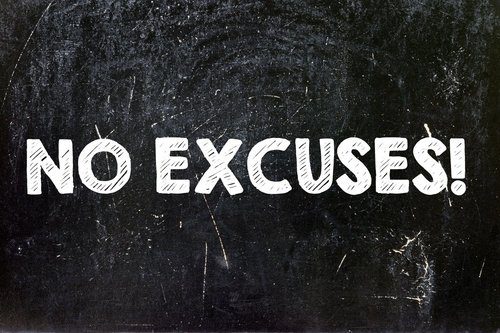Complaining keeps our focus on the problem at hand rather than the resolution sought
Print | Kindle (eBook) | Audiobook
I particularly like books like “A complaint-free world” by Will Bowen as you can tie the book to a core theme or goal. I felt the same paradigm shit after reading “A complaint free world” as I did have with the following books:
- Digital Minimalism: Digital Declutter
- Atomic Habits: Small habits formation.
- Deep Work: Focus
- The ONE Things: Single-Mindedness of purpose
- Essentialism– Elimination of non-essentials
After reading the book, I committed to starting a 21 Days complaint free challenge and also ordered the bracelet to help with achieving the goal from the Complaint Free Website.
If we had no faults of our own, we would not take so much pleasure in noticing those of others.—FRANÇOIS DE LA ROCHEFOUCAULD
Here are my favourite takeaways from reading: A complaint free world by Will Bowen:
Complaint Free Philosophy
Becoming Complaint Free means beginning to practice healthy communication skills. It is not complaining to speak directly and only to the person “who can resolve an issue.”
Goal
A Complaint Free World’s vision is to share Complaint Free bracelets with sixty million people—1 percent of the world’s population.
The Task
It’s the act of moving the bracelet every time that plows furrows deep into your consciousness, making you aware of your behavior. When you recognize your complaints, you will begin to change.
The Complain Free Challenge
Putting a purple silicone bracelet on your wrist and then switching it from wrist to wrist every time they complained, until they completed twenty-one consecutive days without complaining, criticizing, or gossiping. In so doing, they have formed a new habit. By becoming conscious of and changing their words, they have changed their thoughts and begun to create their lives by design.
The Complaint Free bracelet is not a symbol you sport on your wrist to inform others that you support living Complaint Free. Rather, properly used, it is a tool that will make you aware of when and how often you complain, so you can stop
When you go through the practice of moving your bracelet from wrist to wrist, over and over, time after time, you will begin to notice your words. In so doing, you will become aware of your thoughts.
Your purple bracelet sets a trap for your negativity so it can be caught and, in time, released, never to return.
Complaining is like bad breath. We notice it when it comes out of someone else’s mouth, but not when it comes out of our own.
What is Complaining?
In A New Earth, Eckhart Tolle summed up complaining:
“Complaining is not to be confused with informing someone of a mistake or deficiency so that it can be put right. And to refrain from complaining doesn’t necessarily mean putting up with bad quality or “behavior. There is no ego in telling the waiter your soup is cold and needs to be heated up—if you stick to the facts, which are always neutral. “How dare you serve me cold soup … ?” That’s complaining.”
It is not complaining to speak directly and only to the person who can resolve an issue
We Compalining to the Wrong Person
When most people are unhappy with their boss, they complain to their spouse. When they are displeased with their spouse, they complain to their friends. They speak to anyone and everyone except the person who can actually improve the situation, and they live in disappointment and bewilderment, wondering why their relationships don’t improve.
Complaining vs Statements of Fact
- A statement of fact is a neutral comment intended to inform (not berate) the listener.
- Complaints are counterattacks for perceived injustices. A statement of fact is a neutral comment intended to inform (not berate) the listener.
A complaint is distinguished from a statement of fact by the energy expressed.:
- Statement of Fact: It’s hot today
- Complaints: A heavy sigh followed by the lament “It’s hot today”
Characteristics of a complaint
- There is negative energy being expressed with a complaint
- Most complaints have a “This is unfair!” or “How dare this happen to me” quality.
- Complaints are counterattacks for perceived injustices.
Man invented language to satisfy his deep need to complain.—LILY TOMLIN
Why We Complain
People complain to Get attention, Remove responsibility from themselves, Inspire envy, have Power over others, and Excuse poor performance.
Mnemonic on Complaining (G.R.I.P.E)
- Get attention
- Remove responsibility
- Inspire envy
- Power
- Excuse poor performance
Get attention
Human beings have an innate need to be acknowledged by other people. Attention from others makes them feel safe, secure, and cared for. Being recognized by others makes them feel that they belong, that they are part of the tribe. People will often complain simply because they want attention from others and can’t think of another, more positive means of getting the notice they crave.
When someone complains to Get attention, ask, What is going well for you?
Remove responsibility
Goal: soliciting agreement for Victimhood
This type of complainer seeks to build a case for his or her inability to achieve by painting a hopeless picture as to the outcome. “There’s no use,” the complainer is saying. “So I’m not going to try.” And this complainer is soliciting agreement from those who hear his or her complaints so as to validate that victimhood.
When someone complains to Remove responsibility, ask,
If it was possible, how might you do it?
Inspire Envy
People often complain to inspire envy; that is: to brag. A person will complain about someone else as a means of saying that he or she does not have the perceived character flaw being complained about.
When someone complains to Inspire envy, compliment that person for possessing the opposite trait.
Power
A person complaining for power is saying, “If it ever comes down to me against him, here are the reasons you should be on my side.
When someone complains to you about someone else in order to gain Power, invite that person to speak directly to the person being complained about.
Excuse poor performance
Unlike the person complaining to justify inaction, a person complaining to excuse his or her poor performance complains about circumstances after the fact to explain away failure.
“When someone complains to Excuse poor performance, ask what he or she plans to do differently next time”
The Four Stages of Complaining Competences
- Unconscious Incompetence
Just as a fish may not even be aware of the water that surrounds it, you may not be aware of all of the complaints you hear and speak. Complaining is so much a part of who we are, it’s difficult to recognize what is and is not a complaint.
2. Conscious Incompetence
Moving into the Conscious Incompetence stage means becoming uncomfortably aware of just how often you complain. You begin to catch yourself complaining but only after the fact, and you can’t seem to stop. You repeatedly switch your bracelet, but your complaints don’t seem to be diminishing. I’ve heard some refer to this as the “Stop me before I complain again” stage
3 Conscious Competence
When you find yourself around other people who are complaining and you catch yourself feeling compelled to chime in, breathe. When something frustrating happens and you have the chance to unload your frustrations on someone else, breathe.
4. Unconscious Competence
In the Unconscious Competence stage you are no longer an “ouch” looking for a hurt. Rather, your thoughts are now on what you want, and you are beginning to notice how what you desire manifests. Not only are you happier, but also the people around you seem happier. You are attracting upbeat people, and your positive nature is inspiring those around you to even higher mental and emotional levels.
Triangulation
Talking to someone other than the person with whom you have a problem is triangulation. Triangulation occurs when you experience a challenge with someone but discuss the situation with someone else. Healthy communication is speaking directly and only to the person with whom you have an issue.
Triangulation is complaining, and it perpetuates rather than solves problems.
Benefits of being complaint free
- A person who does not complain tends to get what he or she desires more easily simply because people want to help an agreeable person more than they want to help someone who berates and harangues them. Now that you have become Complaint Free, people are going to want to work with and for you, and you will achieve and receive more than you ever dreamed. Give it time, watch for it, it will happen.
- If you complain about a situation, you may be able to draw others to you, but “you won’t be able to get much done, because your focus is on the problem and not the solution. Discern what needs to be done and then begin to speak in terms of what it will be like when the challenge no longer exists, when the gap is bridged, when the problem is solve
“Complaining may benefit us in many ways, such as gaining sympathy and attention—it may even gain us a radio audience—but being happy is not a benefit derived from complaining.”
If you will begin to call the people and events in your life by names that spur positive energy within you, you will find that they no longer bother you and in fact can be a real source of inspiration and growth. Change the words you use and watch your life change. For example:
INSTEAD OF CONSIDER
Problem Opportunity
Setback Challenge
Enemy Friend
Tormentor Mentor
Pain Discomfort
I demand I would appreciate
I have to I get to
Complaint Request
Struggle Journey
You did this I created this
All the best in your quest to get better. Don’t Settle: Live with Passion.



5 Comments
Pingback: The 21-Days Complaint-Free Challenge. – Lanre Dahunsi
Pingback: The Elusiveness of Happiness. – Lanre Dahunsi
Pingback: 100 Books Reading Challenge 2020 – Lanre Dahunsi
Pingback: The Howling Dog Story. – Lanre Dahunsi
Pingback: On Complaining. – Lanre Dahunsi